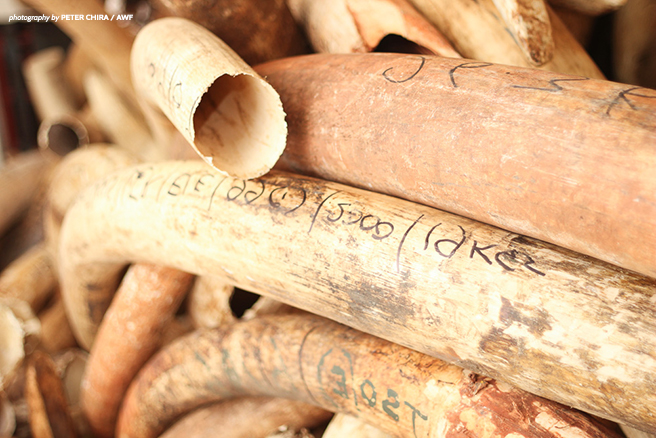Combined Effort Cracks Ivory Cartel in DRC

Last week brought good news for elephants and other species threatened by illegal wildlife trafficking, as a collaborative effort between the Democratic Republic of the Congo’s (DRC’s) national police, the Lusaka Agreement Task Force (LATF) and INTERPOL apprehended four members of an alleged ivory cartel.
Two senior officials in the Congolese government and two senior shipping company officers were arrested for their alleged involvement in trafficking multi-ton shipments of tusks from Africa to markets in Asia. The arrests came after a 16-month long investigation that spanned Thailand, Vietnam, Singapore, Kenya, the Republic of the Congo and DRC.
Since September 2015, LATF—an inter-governmental African organization focused on investigating illegal wildlife trade—has been receiving specialized law enforcement training from a program known as Africa’s Regional Response to Endangered Species Trafficking (ARREST). The program, sponsored by the U.S. Department of State’s Bureau of International Narcotics and Law Enforcement, was jointly launched by African Wildlife Foundation (AWF), the International Fund for Animal Welfare, FREELAND Foundation, and law enforcement and wildlife officials from eight countries across Africa.
There have been many encouraging indications of a wildlife crime being taken more seriously in Africa—most recently, an ivory kingpin in Kenya was sentenced to 20 years in prison and fined Ksh 20 million (roughly US$200,000). Almost all of these signs of progress have occurred in East and Southern Africa, however. As a major Central African bust involving high-level players, the arrests in DRC are particularly significant.
“To secure the future of Africa’s wildlife, African nations must recognize wildlife trafficking as a major criminal offense, with significant penalties handed down by the judiciary,” says Craig R. Sholley, senior vice president at AWF. “This is happening with ever-increasing frequency in East and Southern Africa, and it’s AWF’s hope that the punishment rendered in the case of these DRC ivory traffickers will become a strong deterrent to all Central Africans involved in the illegal trade of wildlife products.”